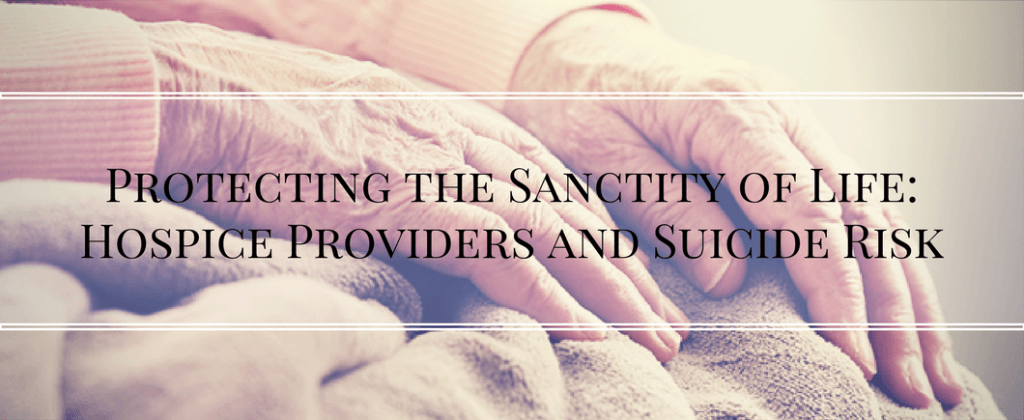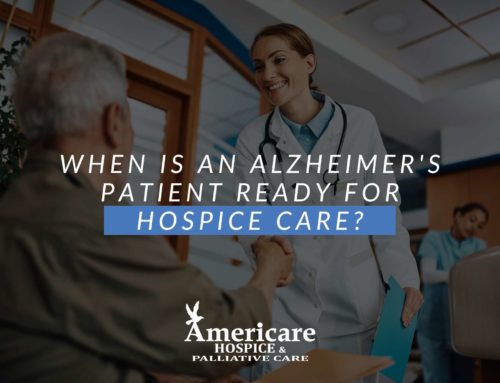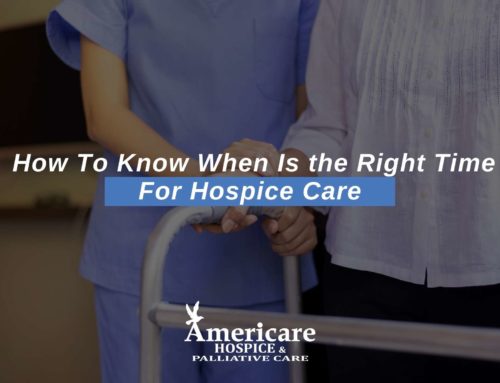Protecting the Sanctity of Life: Hospice Providers and Suicide Risk
Compassionate Approaches to Supporting Patients Through Mental Health Crises
Many patients who are in hospice care in Gilbert are at the end of their life and may be in great pain. It is not uncommon for some of these patients to have suicidal thoughts. They may feel that ending their life is the best option since they are already nearing the end of their life and making that decision sooner will put an end to their pain. Some may make the attempt themselves, and others may ask family members or care providers to do something to help them. Others may simply choose to stop life-sustaining measures, such as the medical administration of food and other nourishment.

At Americare Hospice and Palliative Care in Arizona, we believe in protecting the sanctity of life, and that includes continuing to offer basic nourishment, even through medical administration. We do not condone euthanasia, and we will always provide basic nourishment so long as doing so does not create more of a burden to the patient than it does a benefit. We also provide counseling and grief services to help patients and their loved ones process their feelings about the illness and impending death.
When we provide local Gilbert hospice care in the community or through our inpatient hospice program, we look for signs of suicide and intervene where necessary. Here are some of the signs we recognize and how we respond to them:
Voluntary Refusal of Nourishment
 Some patients voluntarily stop eating and drinking. When offered food or liquids, they refuse to take them in the hopes that they will slowly fade away. They may die slowly, or they may trigger a crisis that causes a major health problem. We do not support any attempt to bring about death, and we believe it to be a moral and ethical violation.
Some patients voluntarily stop eating and drinking. When offered food or liquids, they refuse to take them in the hopes that they will slowly fade away. They may die slowly, or they may trigger a crisis that causes a major health problem. We do not support any attempt to bring about death, and we believe it to be a moral and ethical violation.
Our staff strives to provide compassionate care for all patients, so they would attempt to address the pain that is causing patients to resort to such extreme measures. The plan of treatment would be reviewed to determine other ways that comfort can be provided to the patient to improve the quality of life in whatever way possible.
Emotional Despondency
When patients are facing the end of their lives and are dealing with debilitating pain, it can be difficult to distinguish the normal grief response from a severe depression or suicidal thoughts. Our staff is trained to recognize the signs of severe emotional despondency and to respond appropriately with the proper emotional and spiritual support.
Since we use a team approach to patient care, many people get to know a patient’s physical symptoms and emotional responses, and support is offered on a daily basis. When something serious changes, we notice it right away and can make changes to the hospice care plan to provide the appropriate level of support to help the patient get through these suicidal feelings.

[lyte id=”o7As4t4nI9Q” /]
The compassionate and loving team at Americare Hospice and Palliative Care in Arizona strives to make every patient in our care feel as good as they can while they are managing their illness. That includes pain and symptom management, but it also means ministering to their spiritual and emotional needs. If you are looking for a local hospice center in the Gilbert area 85234 for a loved one, we urge you to contact us to learn more about our hospice services.
Published By:
1212 N. Spencer St., Suite #2
Mesa, Arizona 85203
Office: (480) 726-7773
Fax: (480) 726-7790
Email: info@americarehospice.org






